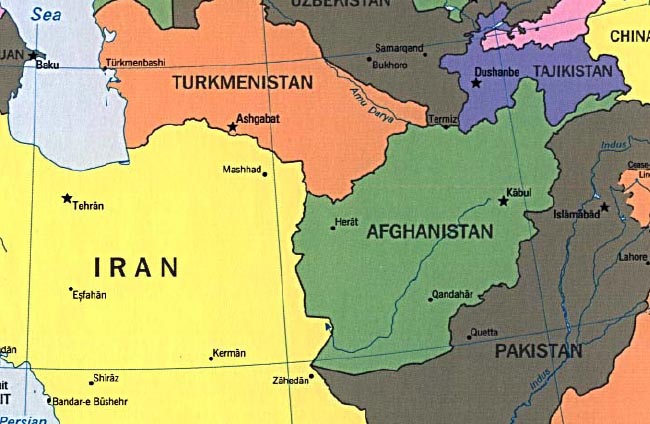From long ago, Afghanistan has been the connecting and colliding point of far-reaching strategy for regional and global powers. Therefore, Afghanistan has never gained sustainable peace during its political lifetime and has been one of the most unstable countries in the world. The strategy of the contemporary regional powers such as the Great Britain and Russia tsar, and the destructive collision of the US and Soviet Russia were the closest and most detrimental strategic collisions which resulted in the destruction and elimination of the country’s human, economic and political infrastructures. The death and immigration of millions of people – besides the destruction of all social institutions such as government, health and sanitation, education, etc. – have been the direct outcome of such strategic impulses that Afghanistan has ever experienced.
After the Bonn agreement which paved the grounds for peace, a sense of confidence emerged and it was hoped that Afghanistan would change into the point of consensus and coexistence of regional and international strategies rather colliding ground or strategic impulses for global powers. This optimistic view, which was supported by regional powers, paved the way for new political system on the theory of fair participation in the electoral process and political self-determination, acceptance of diversity and pluralism, religious, linguistic, ethnic and equitable distribution of opportunities and national privileges.
This system – which was channeled to resolve the intra-state’s basic challenges, create a prosperous and progressive society based on social justice, preserve human dignity, protect human rights and democracy, ensure national unity and equality among all ethnic groups and tribes and balanced development in all parts of the country along with international support – multiplied the optimism and hope for peace, prosperity and sustainable stability more than ever before.
Following the Bonn agreement, this approach continued with considerable ups and downs in the interim government, mainly on the basis of the National Unity Government’s strategy which intended to change Afghanistan into the junction of regional and international economic interests and increased Afghans’ hope and optimism. Although the basic components of sustainable peace and stability such as citizens’ active participation in political decisions and actions, fair distribution of opportunities and national privileges, balanced development and providing social justice were paid less attention or no attention in the post-Bonn administrations. Despite this fact, the main body and majority of Afghan people remained faithful to the new social and political system. Meanwhile, the country’s administrators will have to pay serious and strategic attention to country’s security and stability in this regard.
However, the main point which bears national and international significance in this historical situation is the emergence of new signs of national and international powers’ strategic impulses which are taking place in Afghanistan. The strategic and hostile crossing and collision of the US and its allies on one side with Russia and its allies on the other side in global level such as Syria, Yemen, Bahrain, and North Korea represent their collisions and result in lack of peace and instability and we witness devastating and irreplaceable turbulence.
However, Afghanistan is also on the verge of such collisions and its most serious impulse was easily noticeable in the statement of Afghanistan’s former President Hamid Karzai. No matter whatever reason behind Karzai’s statement was, it carries a very clear message that there is no national capacity for institutionalizing the strategic impulses of regional and international powers. Therefore, there seems to be a need that the country’s senior managers and policy-makers get the message of such impulses and protect Afghanistan’s security and stability through establishing short-term, mid-term and long-term strategies. Moreover, they will have to prevent from the opening of a whole can of worm and unfolding national unrest via taking right and vigilant decisions. What have compounded the responsibilities of the National Unity Government more than any other time are: active foreign policy and emphasis on balanced progress and development, fair distribution of opportunities and national privileges and citizens’ active and effective participation in determining their political fate.
It should be noted that if strategic impulses dismantle national peace and stability, sovereignty and political system, coexistence and social consensus and return the country to the previous situation, which was before the Bonn agreement, the gleam of hope will disappear and the country will encounter with the most tragic state and its normalization would be next to impossible.

